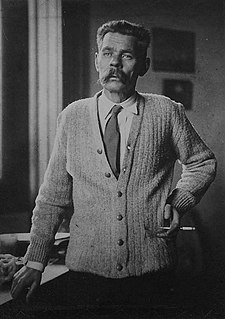A Quote by Henry David Thoreau
For the most part we stupidly confound one man with another. The dull distinguish only races or nations, or at most classes, but the wise man, individuals.
Related Quotes
It is, however, a most astonishing but incontestable fact, that the history of the evolution of man as yet constitutes no part of general education. Indeed, our so-called "educated classes" are to this day in total ignorance of the most important circumstances and the most remarkable phenomena which Anthropogeny has brought to light.
It depends on how you define the word "racialist." If you mean being conscious of the differences between men and nations, and from that, races, then we are all racialists. However, if you mean a man who despises a human being because he belongs to another race, or a man who believes that one race is inherently superior to another, then the answer is emphatically "No."
Man can learn self-discipline without becoming ascetic; he can be wise without waiting to be old; he can be influential without waiting for status. Man can sharpen his ability to distinguish between matters of principle and matters of preference, but only if we have a wise interplay between time and truth, between minutes and morality.
A man goes to the village to visit the wise man and he says to the wise man, “I feel like there are two dogs inside me. One dog is this positive, loving, kind, and gentle dog and then I have this angry, mean-spirited, and negative dog and they fight all the time. I don't know which is going to win.” The wise man thinks for a moment and he says, “I know which is going to win. The one you feed the most, so feed the positive dog.



































